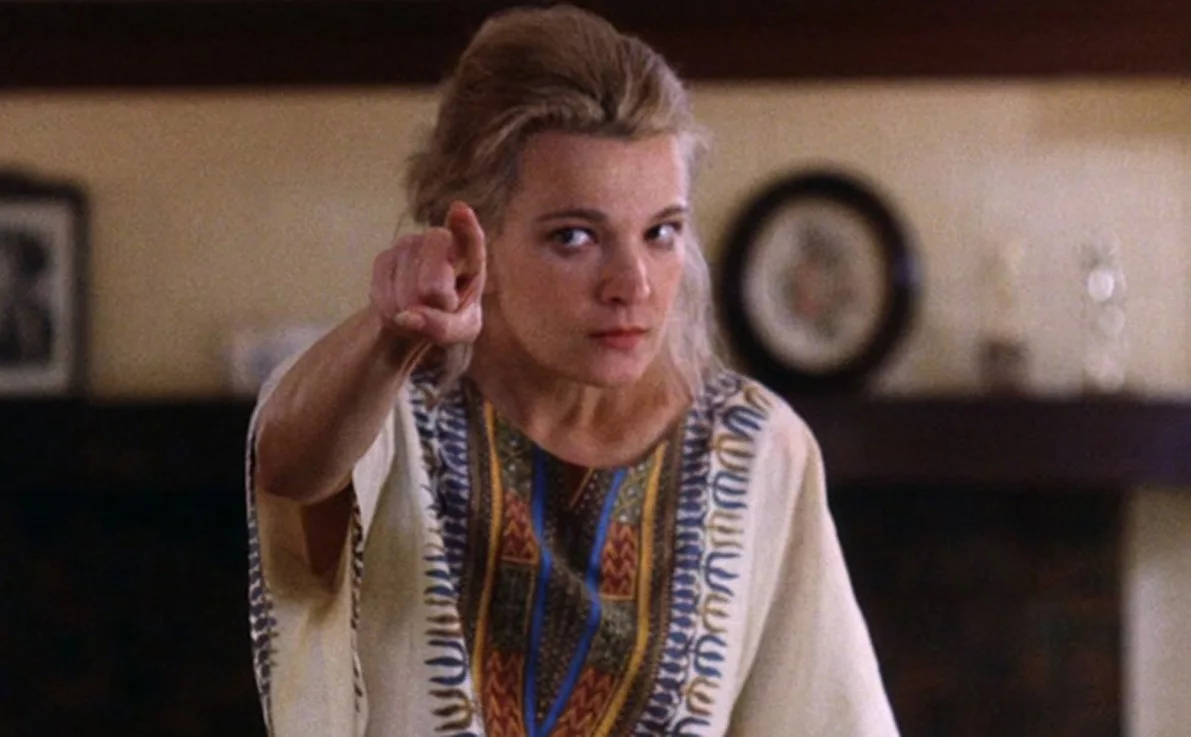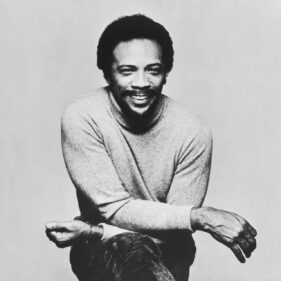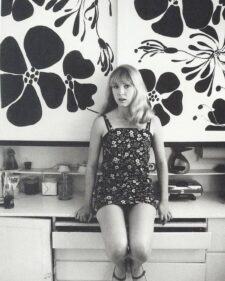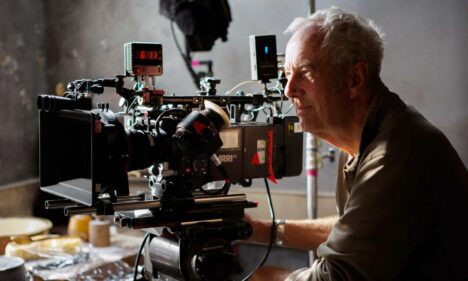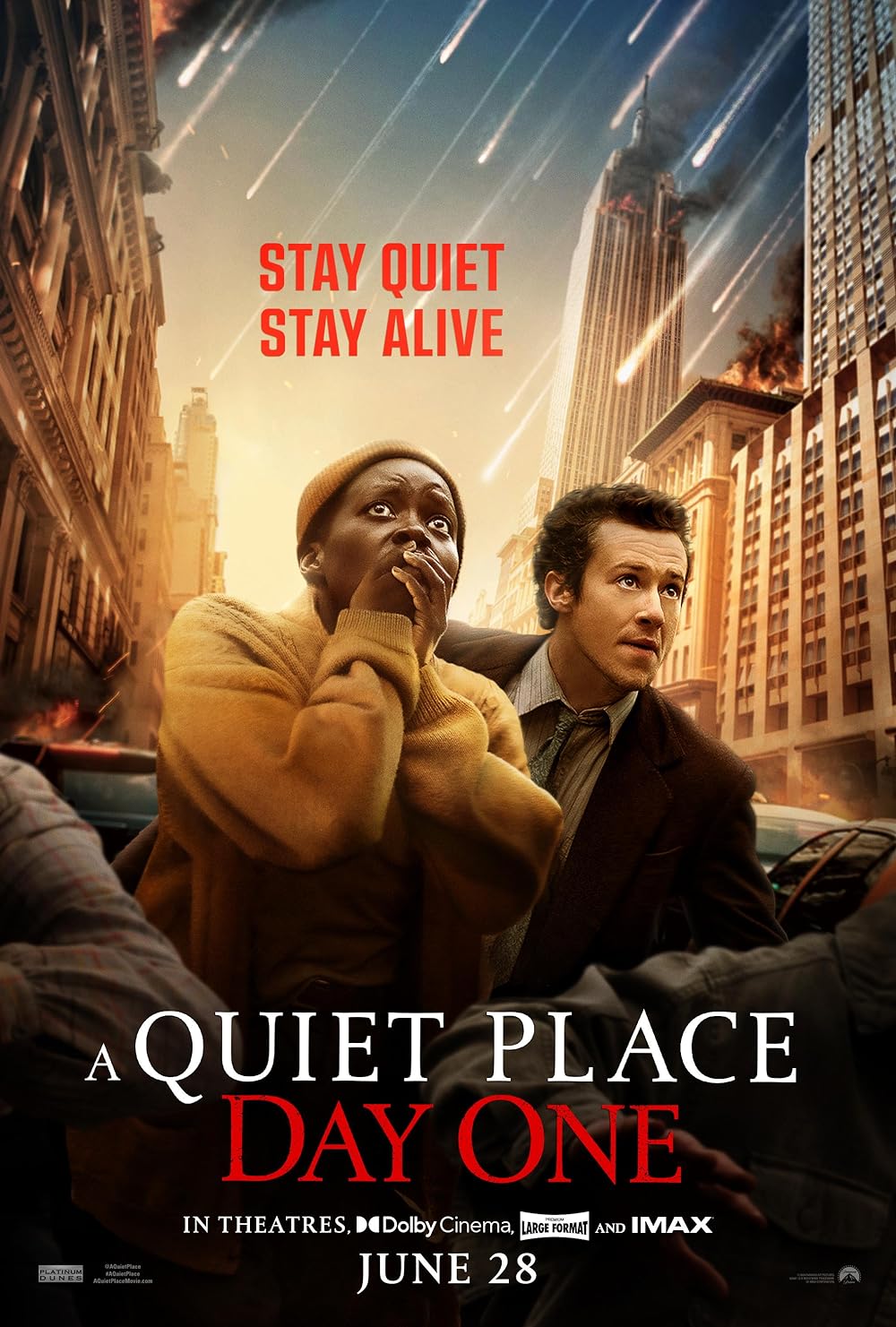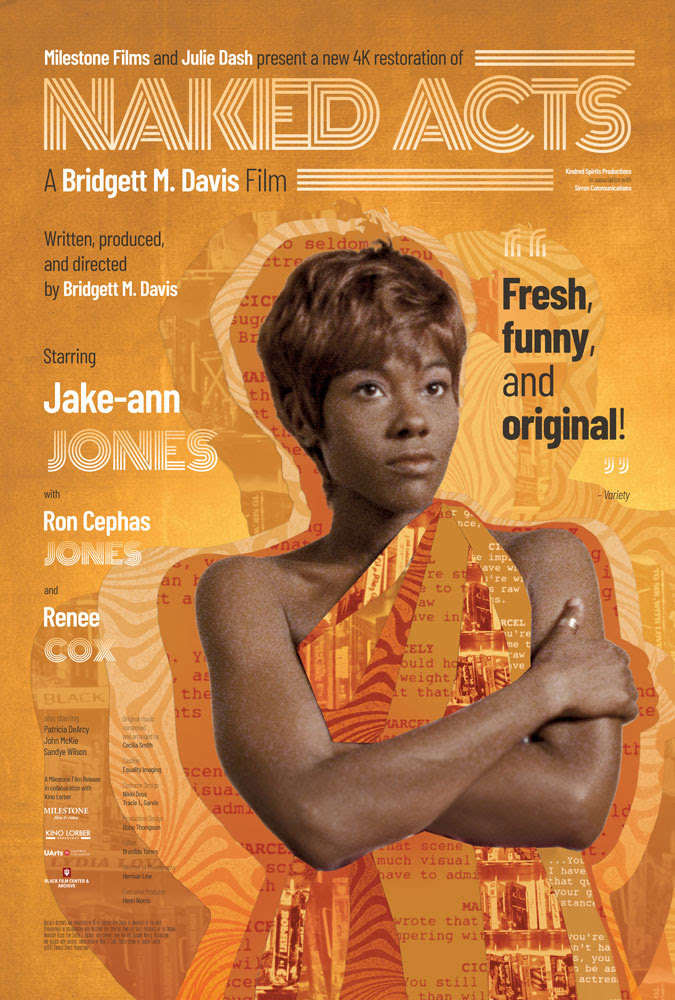Richard Brody, the highly esteemed critic of The New Yorker, would often wish Gena Rowlands a Happy Birthday on the 19th of every June, writing in 2022 that she was "the most inventive, creative, original, transformative actress in the history of cinema." He wasn't wrong. And now she's gone. Our very own Sheila O'Malley wrote a wonderful tribute to the legend last week, but we had a few other contributors that wanted to offer their thoughts on Rowlands and her career.
BRIAN TALLERICO
You had to watch a Gena Rowlands performance twice to really appreciate it. The first time, you'd be too entranced by the character. There was arguably no one better at fully embodying someone who felt so real that you would forget you were watching a movie. The second time, you could see the choices Rowlands was making from small, instinctual elements of body language to the nuanced way she would play the bigger emotional beats. Rowlands was a performer who somehow felt both totally realistic and like a blinding movie star at the same time. Almost miraculously, you felt like you knew the character she was playing but also knew that she was operating on an entirely different level as a performer. In that sense, it was like watching a great athlete. Sure, we can all play baseball, and recognize the form and purpose of the game, but we're not all good enough to make the pros. Gena Rowlands was a pro, through and through, and there will never be another like her.
Note: I'm often asked my pick for the best acting performance of all time, and I'm certain that my most-given answer has been Gena Rowlands in "A Woman Under the Influence." It's absolute, mesmerizing perfection.
ROBERT DANIELS
"When I was 18, I could do anything. My emotions were so close to the surface I could feel everything easily," says Gena Rowlands. "But now, this is years later, plays later, years later." It's a line of dialogue in John Cassavetes' "Opening Night," delivered with a mixture of anxiety, doubt, and force that I often think about. "Opening Night" was the fourth film Rowlands collaborated on with her husband, made during her late-40s—a decade when life is in full swing for most, but signals a death knell for actresses. That tension lies at the center of Rowlands' Myrtle Gordon, a stage actress struggling to wrap her hands around the part of an older woman who seems so unlike her but in reality is so incredibly close to her. She is further unmoored by the death of a young teenage fan, who, in a bid to gain Myrtle's autograph following a show, was accidentally struck by Myrtle's car. Now the image of that girl, a projection of Myrtle's own youth seems to haunt the actress.
Writing about "Opening Night" through the lens of performance, Cassavetes and Rowlands' creative and personal relationship, and Rowlands' own approach to the craft guides one into conversations that the film has always invited. And yet, I can't help but return to that line of dialogue. It happens in a discussion between Myrtle and the play's writer Sarah Goode (Joan Blondell). Goode has arrived to calm Myrtle, who's been reworking the script to fit a vision of herself. But what erupts in that half-finished line: "this is years later, plays later, years later"—is a revelation about craft. In the beginning, creatively, we are tapping into emotions to bolster the experience we do not have. As we age, learning tips, tricks and routines along the way, the craft takes over. Sometimes what is sacrificed is the pure, rare emotion—cast away as though it were a crutch. In "Opening Night," Myrtle is searching for what she's lost.
How much should the artist give of themselves to the art? When does a pound of flesh become the entire body and soul? Against Sarah, a strained, agitated Myrtle pleads that she has very little in common with the part: she isn't married and doesn't have kids. Acting is her life. Rowlands' blue eyes are wide and wild. Framed in a medium shot, we see Rowlands' body defensively tense up like a spring that doesn't know where to pop. Cassavetes cuts to a closeup, and Rowlands' expression has changed. There is a smirk when she leans in and says, "When I was 18, I could do anything," the type from a person who until very recently had not questioned that an immense power still resided within. There are moments of quiet truth in her deliverance of these lines: her eyes nearly close in secrecy before opening large, where a glossy film of tear lies on the surface of the iris. There is melancholy in Myrtle's confession. It's the feeling that something has passed and may never return, that the sun has stopped spinning. It's a feeling I can't shake while knowing Rowlands, that actress as honest and as unflinching as the sun, is now gone.
MARYA E. GATES
As a millennial, I came to Gena Rowlands late in her career. A lot of headlines after her death mentioned "The Notebook," a film I'll admit I do love. But the first film I saw with Rowlands was "Hope Floats," the Texas-set romantic drama where she played Ramona, the eccentric mother of Sandra Bullock's character Birdee and grandmother of angsty pre-teen Bernice (Mae Whitman). After an acrimonious separation from her husband Bill (Michael Paré), Birdee and her daughter move in with Ramona as they try to get back on their feet. Rowlands' ferocious performances in the films she made with husband John Cassavetes are unquestionably among the greatest ever captured on celluloid, but I will always find a special comfort in Ramona.
Just like those more iconic performances, she was unapologetically herself. She wore big hats and wasn't bothered by what anyone thought about her. She found joy in small things like feeding her ducks and playing with her dog. And she spoke her mind often, unafraid to ruffle feathers with uncomfortable truths. She was firm but loving. I was twelve when I saw this film and I never really knew either of my grandmothers, both of whom had died by the time I was six years old. I often imagined what it would be like if Ramona were mine. Rowlands crafted a complex woman who was a little strange, but always warm and welcoming of those in need. She was the kind of woman I hoped I would grow up to become someday.
I rewatch this film every year around September. Something about it feels just right during the last days of summer and the first crisp days of autumn. The film's emotional climax comes when Ramona, sipping her nightly tea, suffers a massive heart attack and passes away, just after she's helped Bernice begin to patch up her rocky relationship with Birdee. Something tells me my annual rewatch this year is going to hurt like hell, but I'll always be grateful for Ramona, and for every golden moment that Gena Rowlands put out into the world.
NELL MINOW
Gena Rowlands defined a shift in moviemaking from the appealing artificiality of the theater-influenced gestures and mid-Atlantic diction to the raw and messy authenticity of the French New Wave, British Kitchen Sink, and, perhaps the best term for the American equivalent, Cassavetes/Rowlands. Their work together reflected a depth of trust and daring that connect with audiences as though the screen dissolves and it is happening in real life in front of us.

SEONGYONG CHO
I remember well the first time I came to notice Gena Rowlands. Around 20 years ago, I happened to rent a VHS copy of Woody Allen's "Another Woman" (1988) on one chilly winter day, and Rowlands' quiet but undeniably powerful performance in the film lingered on my mind for a long time after the movie was over. As a matter of fact, when I belatedly checked out her husband John Cassavetes' works after several years later, I was quite surprised by how much she looks and feels different compared to her more restrained acting in "Another Woman". In "A Woman Under the Influence" (1974), the sheer intensity of her raw performance carries the film all the way to the end with considerable emotional power, and the same thing can be said about "Opening Night" (1977), which may be a mere showcase of her immense talent but is still quite striking nonetheless thanks to another knockout performance to remember.
Although it looked like she passed her prime after the fruitful collaborations with her husband who sadly died in 1989, Rowlands kept working nonetheless for more than 20 years, and she was always a pleasure to watch in a number of notable films. Sure, "The Notebook" (2004) will naturally be mentioned first, but she was also wonderful in several other good movies such as "The Mighty" (1998), where she and the late Harry Dean Stanton were touching as the caring grandparents of the hulking but soft-hearted young hero. In addition, she also appeared in TV series and movies while receiving three Emmys, and I still fondly remember her gentle Emmy-nominated guest appearance in "Monk".
Around the time when she received a well-deserved Honorary Oscar, Rowlands was virtually retired, and then she unfortunately suffered Alzheimer's disease during the last several years of her life. Her significant achievements will always be remembered as some of the finest moments in movie acting history, and we will surely miss her.
PETER SOBCZYNSKI
At the risk of jeopardizing my reputation as a semi-respectable film critic, I must confess that, for whatever reason, the works of filmmaker John Cassavetes have never quite clicked with me to the extent that they have for so many others over the years. However, the best of those films had one asset that even a naysayer like myself could not begin to deny and that would be the extraordinary presence of Gena Rowlands. Whether playing a museum worker still searching for the kind of romance that the movies sold her on long ago in "Minnie and Moskowitz," the tough-as-nails broad (in the best sense of the word) who reluctantly finds herself serving as the guardian and protector of an endangered kid in "Gloria" or the emotionally and psychologically wounded women seen in "A Woman Under the Influence" and "Love Streams," she committed to the often-risky roles with such a unique combination of raw talent, undeniable charisma and utter fearlessness that she all but leapt off the screen without ever for a moment coming across as if she was "acting." If you saw her work in these films, you never forgot it and if you were to make a list of the most galvanizing actors in cinema history and failed to include her near the very top, you would need to go back and do a rewrite.
Even when she was working with people other than Cassavetes, the work was so strong and sure that it leaves one to ponder the question of whether she ever gave a bad performance during her long screen career? Oh, she was in bad movies from time to time, but even in those comparatively undistinguished circumstances, she approached her characters and the material with undeniable care and craft—more so than the filmmakers themselves, one could argue. On the other hand, she was able to shine brightly in other roles that made full use of her prodigious talents, such as former First Lady Betty Ford in "The Betty Ford Story," the mother figures of the dysfunctional family units in "Light of Day" and "Once Around," the academic suffering from a mid-life crisis in "Another Woman," and the Hollywood bigwig in conversation with her cab driver in "Night on Earth." She might not have been a movie star by the most basic of standards but for anyone remotely interested in the process and craft of screen acting, she was as good as anyone who ever set foot in front of a camera. Face it, there will never be another Gena Rowlands—we are just lucky to have had her for the time that we did.
